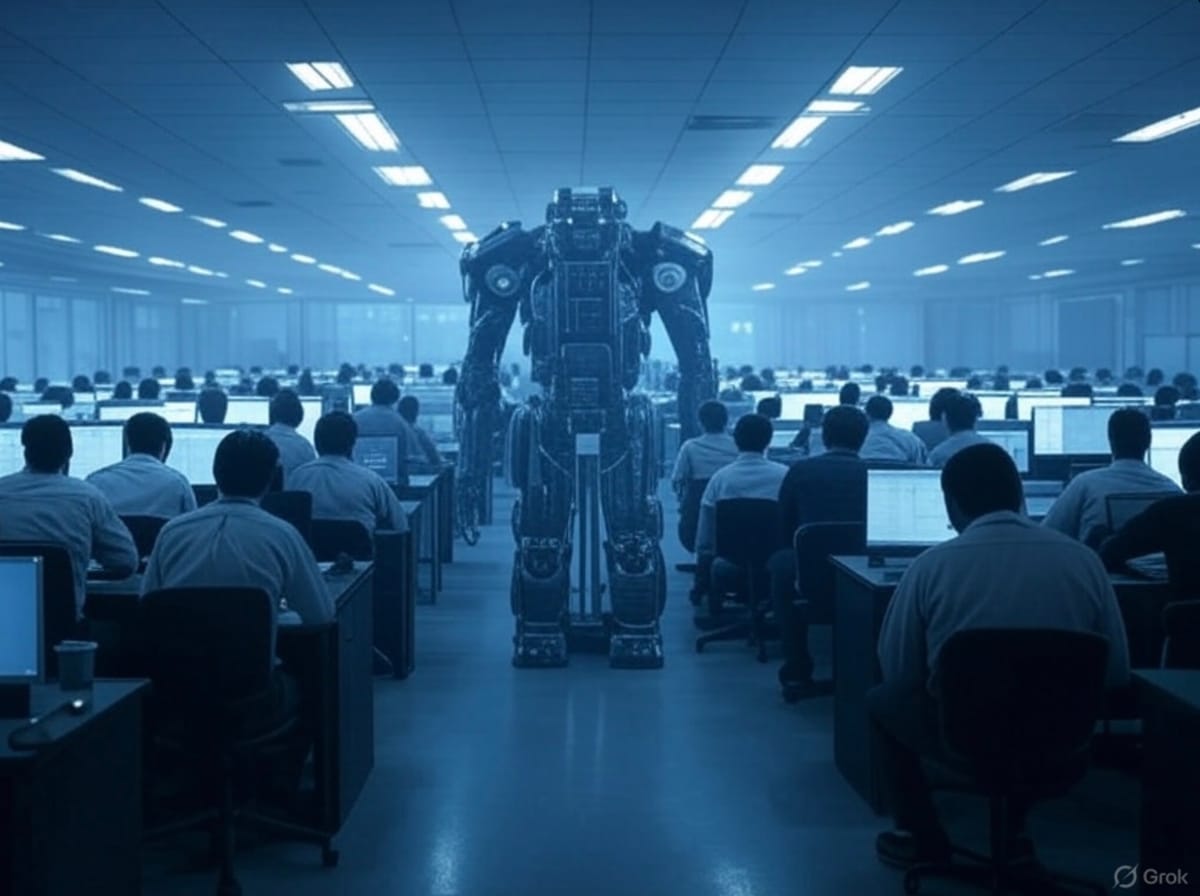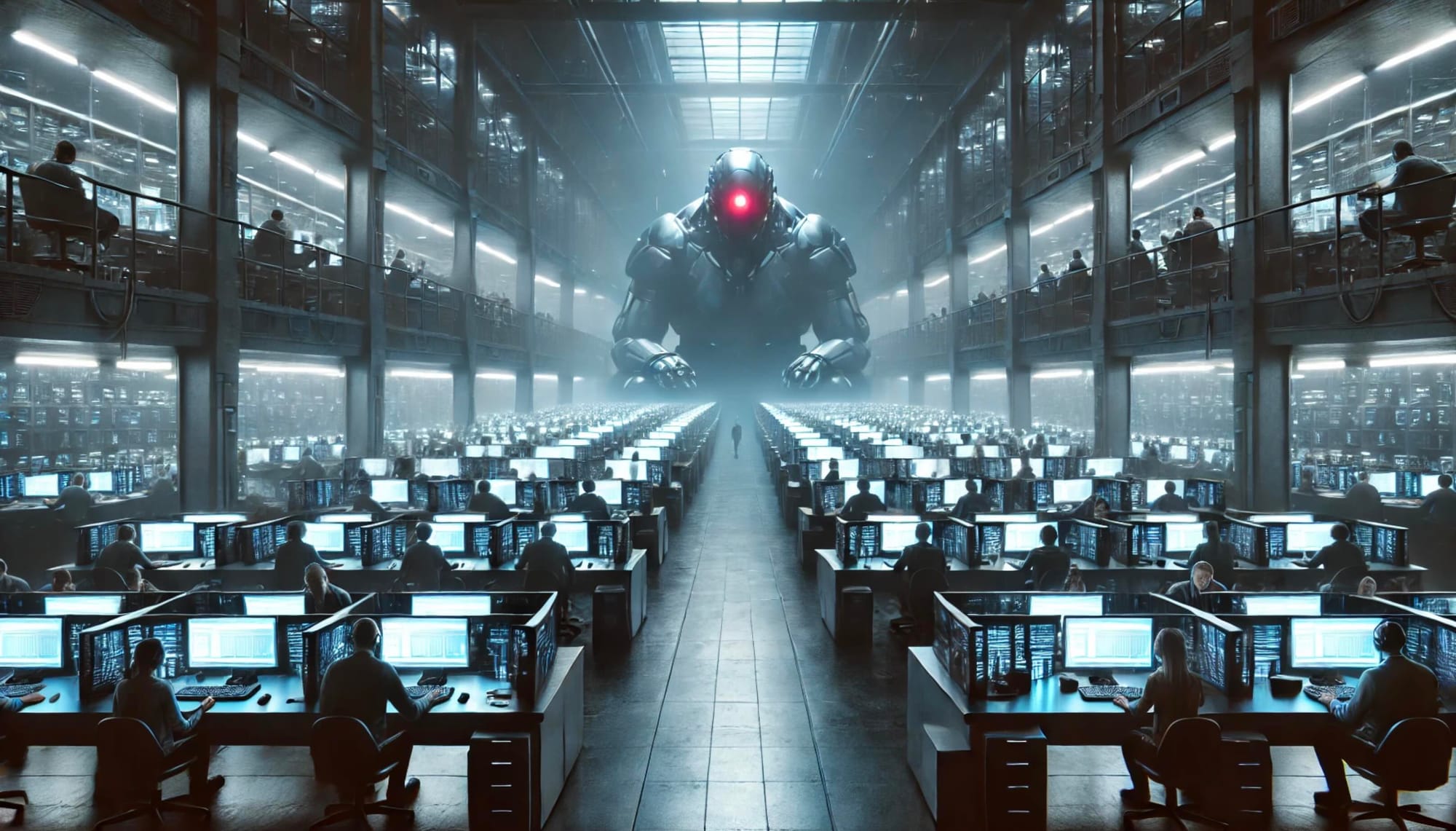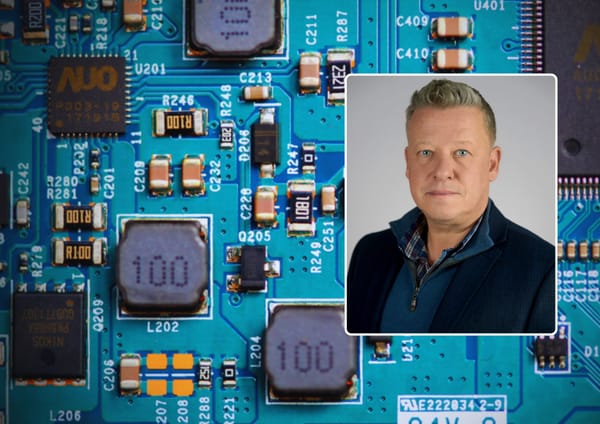Algorithmic micro-management: The nightmarish future of work
"AI managers can cause frustration, stress and lower productivity as workers feel constantly monitored."

Micro-managers are a scourge of the modern workplace. Yet the workers of tomorrow may face even more controlling bosses with less human empathy than the hyper-controlling nitpickers of today.
The EU has released a new briefing about potentially nightmarish technology called AI and algorithm-based worker management (AIWM), highlighting the many ways in which it will make our working lives unbearable in the future.
In its new research, the European Agency for Health and Safety at Work described AIWM as "digital systems that use data from the workspace, workers and tasks."
"The data are fed into algorithmic or artificial intelligence (AI) systems to make automated or semi-automated decisions about work shifts, the allocation of work tasks, the supervision of workers and the evaluation of their performance," it wrote.
"The use of AIWM systems is increasing, mainly in larger companies in sectors with jobs involving manual or repetitive routine tasks, including white-collar jobs. As their uptake grows, it is important to address the work-related risks, mainly psychosocial risks, associated with their use to ensure workers’ safety, health and well-being."
Malgorithms: The worst boss a human could have?

Whilst there are some small benefits from AIWM, such as increased monitoring of employee wellness, the risks far outweigh the rewards.
The first potential problem highlighted is "work intensification".
"To increase productivity, employers might implement AIWM systems that direct workers to work more and at higher speed and that monitor their performance," the EU warned.
"As a result, workers may feel increased performance pressure and may not take breaks when needed, which may lead to stress and exhaustion and, in turn, to accidents and musculoskeletal disorders. This is common not only in warehouse operations but also in white-collar jobs, such as banking and call centre jobs."
AIWM systems can also "severely" reduce workers’ autonomy by determining their pace and schedule and leaving "little room" for initiative or decision-making - turning humans into tightly controlled automatons.
"Such increased micromanagement can cause frustration and stress – and lower productivity – as workers feel constantly monitored and unable to use their professional judgement," the EU warned.
"Such jobs where workers have high work demands and little control over their work have the highest negative impact in terms of stress."
READ MORE: Baroness says creatives should get universal basic income if their work is "stolen" by AI
Additionally, AIWM systems can create an unhealthily competitive working environment, with every worker able to see their own performance ranked against their competitors. Although some people may welcome this aspect of working, it's likely to stress out other people and could lead to "intense competition at the expense of teamwork and collaboration," the EU said.
"The emphasis on productivity with AIWM can reduce peer communication, resulting in social isolation," the EU continued. "This lack of interaction weakens team spirit, limits support from peers and causes loneliness, negatively affecting mental health and job satisfaction.
"Reduced interactions with and support from supervisors in cases where AIWM systems replace them may also lead to increased stress."
In addition, intrusive monitoring by AIWM systems creates major privacy concerns and could "cause anxiety and distrust towards employers"—assuming anyone has a job when AI takes over.
"Excessive use of AIWM systems in the workplace can reduce workers’ and managers’ cognitive abilities, creativity and autonomy and result in their de-skilling, which can lead to stress," the briefing stated.
What are EU regulators doing to protect citizens?
The European Union has already introduced strict regulations to govern algorithmic management in the workplace. Two key legislative frameworks—the Platform Work Directive and the Artificial Intelligence (AI) Act—set out clear rules on how automated decision-making systems can be used in employment settings.
The Platform Work Directive, adopted in 2024, focuses on the rights of platform workers, such as those in the gig economy, but its principles extend to any workplace using algorithmic management.
The new rules ensure that a person performing platform work cannot be fired or dismissed based on a decision taken by an algorithm or an automated decision-making system. Instead, "digital labour platforms" must ensure human oversight of important decisions that directly affect people's working lives.
Employers must provide clear and accessible information about how automated systems monitor workers and make decisions affecting their employment, including pay, scheduling, and performance evaluations.
READ MORE: "It's pretty awesome": Salesforce on employing ZERO human engineers in 2025
Crucially, workers have the right to request explanations for significant automated decisions and can demand human oversight where necessary. The directive also enforces strict limits on the collection and use of personal data, ensuring that only data essential to an employment contract can be processed by automated systems.
Alongside this, the AI Act, which took effect in August 2024, introduces a broader regulatory framework for artificial intelligence across all sectors, including workplaces.
AI systems that influence hiring, worker evaluations, or career progression are classified as high-risk, meaning they must meet strict requirements for transparency, fairness, and accountability.
Employers using such systems are required to conduct thorough risk assessments, ensure human oversight, and maintain records on how decisions are made. The AI Act also prohibits certain exploitative AI practices, such as those that manipulate vulnerable individuals or engage in social scoring.
Which is all very enlightened and sounds wonderful, just like many pieces of EU legislation. In reality, the EU is competing against nations like China even arguably the US where rules on algorithmic management are likely to be significantly less stringent and levels of productivity - both actual and expected - substantially higher.
Will the EU be able to save us from digital micro-managers? Probably not. Those of us that are lucky enough to have jobs in the age of AI will have to like it or lump it.
A European survey found that digital management tools play a significant role in workplaces, with 30% of employees reporting that their tasks and shifts are assigned automatically, 27% saying that are rated by third parties via digital systems, and 25% experiencing digital supervision or monitoring.
More than half (52%) said digital technologies dictated their work speed, while 37% noted an increase in workplace surveillance, and 7% reported that such tools were even used to track their vital signs.
This growing reliance on digital oversight has been linked to heightened psychosocial risks, including the aforementioned reduced autonomy (27%), poor workplace communication (35%), and increased time pressure and workload (55%). The survey highlighted that the most frequently discussed impact of digital monitoring on worker health and safety was a rise in work intensity and time pressure.
So we should probably just get used to the AI-powered algorithmic micro-managers. I for one do not welcome our new overlords.
Have you got a story or insights to share? Get in touch




